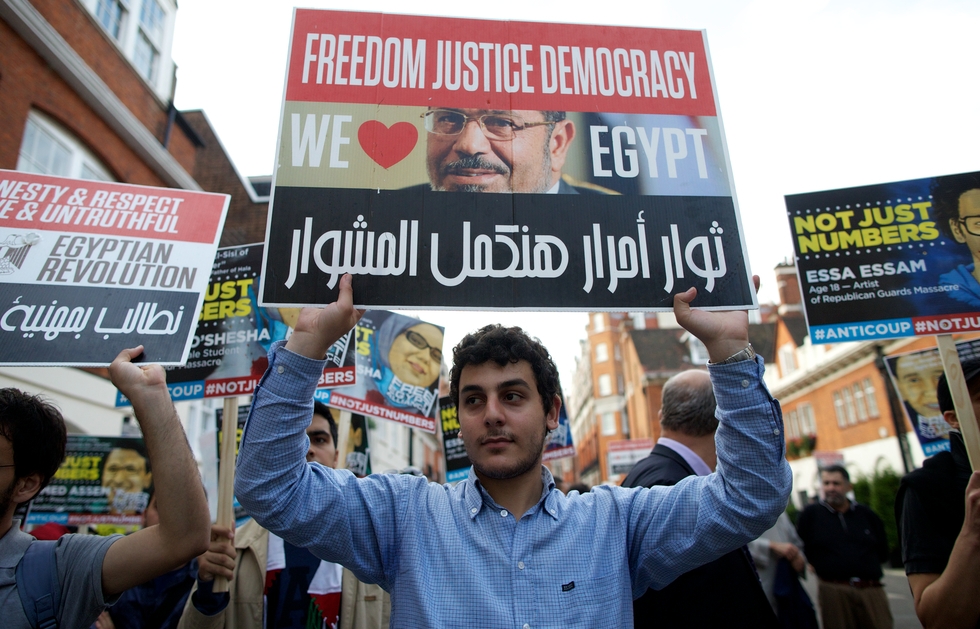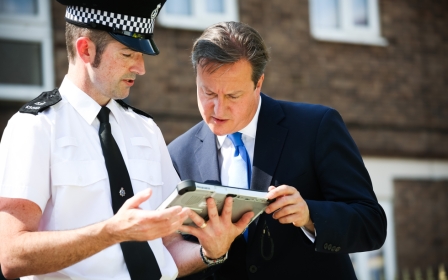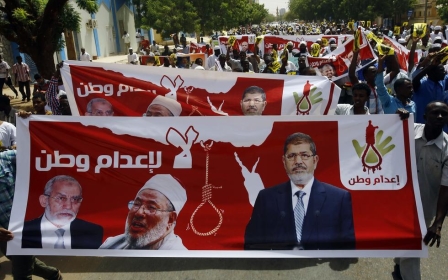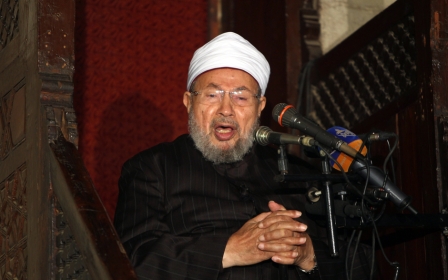UK rules out banning Muslim Brotherhood

David Cameron has said the UK will not ban the Muslim Brotherhood but that the group had a "highly ambiguous relationship with violent extremism" and was "deliberately opaque".
The prime minister's written statement on Thursday was followed up by the publication of an 11-page summary of a review by former Saudi ambassador John Jenkins, which has been repeatedly delayed and will now not be released in full.
What was made public was released without parliamentary debate and just hours before MPs broke up for Christmas.
The Jenkins review did not find direct links between the UK Brotherhood and radical Islam, but said that membership could be considered a "possible indicator of extremism" and that the group had been a "rite of passage" to violence for some members.
As a result, it said, the group would be closely monitored to ensure it was not breaking UK anti-terrorism laws.
The Jenkins report was commissioned in 2013 as Britain came under pressure from the UAE, Egypt and Saudi Arabia to ban the Brotherhood, which had been proscribed as terrorist in all three countries following the removal of Brotherhood member Mohamed Morsi from the presidency of Egypt.
British ministers delayed its publication on two occasions, leading to claims the results would upset British allies in the Middle East.
While the findings released on Thursday did not ban the group, it did criticise the UK branch's support for the activities of the armed wing of Hamas, the Qassam Brigades, which has been proscribed as a terrorist organisation in the UK, and support for acts of "terrorism" in the Palestinian Occupied Territories.
The review found that the Brotherhood in the UK also used London "as a base for activism elsewhere, notably with other Muslim Brotherhood organisations in Europe, in Egypt and the occupied Palestinian territories and in the Gulf. This activity is sometimes secretive, if not clandestine."
It found that the UK branch had been "publicly committed to political engagement in this country. Engagement with government has at times been facilitated by what appeared to be a common agenda against al-Qaeda and (at least in the UK) militant salafism."
"But this engagement did not take account of Muslim Brotherhood support for a proscribed terrorist group and its views about terrorism which, in reality, were quite different from our own."
Egypt welcomed Jenkins' findings, with the foreign ministry saying they confirmed "there is a greater realisation at the international level of the extremist and violent nature of the Brotherhood", despite the summary saying no such thing.
The Brotherhood meanwhile rejected the review, and raised the question of whether it was undertaken due to "pressure by non-democratic regimes".
"We do not accept that these conclusions can be based on credible evidence," said the head of its foreign relations desk, Yehia Hamed.
A London-based lawyer for the organisation said it would be challenging the process of the review in court
A 'fruitless' task
Middle East Eye reported that British intelligence had previously warned Cameron that reviewing links between terrorism and the Muslim Brotherhood would be "fruitless" and not a matter of national security.
MI5 cautioned the prime minister that the review risked damaging relations with elements in the British Muslim community, whom they have used in the past to remove "Salafi Jihadis" from mosques in Britain.
Cameron said that some aspects of the Muslim Brotherhood's ideology and activities were not tolerant of "British values of democracy, individual liberty, and the mutual respect of different faiths and beliefs."
He said: "Parts of the Muslim Brotherhood have a highly ambiguous relationship with violent extremism. Both as an ideology and as a network it has been a rite of passage for some individuals and groups who have gone on to engage in violence and terrorism.
"I have made clear this government’s determination to reject intolerance, and to counter not just violent Islamist extremism, but also to tackle those who create the conditions for it to flourish."
The government has not introduced any changes in dealing with the group, as Cameron went on to list a number of existing policies that the UK is already implementing, such as refusing visas to members or associates who have made "extremist remarks" and monitoring associated charities to make sure funds are not being channelled to finance the group itself.
The prime minister invoked the UK's Counter Extremism Strategy that will make use of insights from the government's overseas posts in order to better understand drivers, networks and ideologies.
"We will continue to consult, and share information and analysis with, governments in the Middle East and North Africa as appropriate," he said. "We will then take further decisions and actions as needed."
The Muslim Association of Britain, one of the groups referenced in the review, described the reviews description of the Muslim Brotherhood as "plainly" wrong.
"The report contains statements that portray an inaccurate image of MAB," said the group in a press release on Friday.
"For example, the statement: 'MAB (like the MCB) have consistently opposed programmes by successive Governments to prevent terrorism' fails to take into account that preventing terrorism is a shared goal, and while MAB has seen the successive Government strategies under ‘Prevent’ or its later iterations as fundamentally flawed, MAB has an alternate vision on the correct strategy for preventing terrorism in the UK, shared by many other UK Muslim organisations.
"MAB has and continues to work for the common good of society, through education, community integration and charitable activities. It denounces terrorism and violent extremism, and actively works to counter all forms of extremism. In the coming weeks, MAB will produce a detailed response to the Government's review, which it believes was 'plainly' wrong on several counts."
New MEE newsletter: Jerusalem Dispatch
Sign up to get the latest insights and analysis on Israel-Palestine, alongside Turkey Unpacked and other MEE newsletters
Middle East Eye delivers independent and unrivalled coverage and analysis of the Middle East, North Africa and beyond. To learn more about republishing this content and the associated fees, please fill out this form. More about MEE can be found here.




